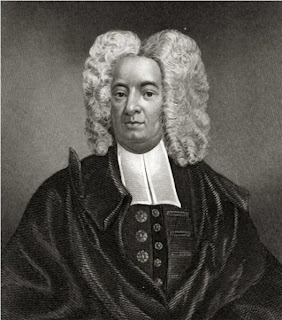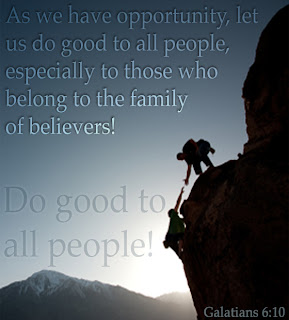 F
From March 12-17, 2010,
Bethlehem Bible College (est. 1979) in
Palestine/West Bank sponsored its inaugural conference devoted to theology and social justice.
I was able to attend the last 3 days of the conference. (The follow-up/second conference is scheduled for
March 5-9, 2012.)
With its title being "
Christ at the Checkpoint: Theology in the Service of Peace and Justice" (also
"Theology of the Land"), the international conference sought "to equip the global church to understand Scripture as it relates to the Palestinian context, and to discuss the theological importance of peace and justice in an evangelical context."
Held at Bethlehem's
Intercontinental Hotel (
Jacir Palace), BBC's hope was "to provide a forum for
evangelicals who take the Bible seriously to prayerfully seek a well-informed awareness of issues of peace, justice and reconciliation which are contextually sensitive as well profound to scriptural scholarship."
Over 15 speakers from the U.K., U.S. and Palestine/West Bank delivered lectures to the over 400 in attendance.

While most all of the speakers were from the political, social and theological left (liberal/progressive), the conference did invite two well-known conservative evangelical scholars (both whom I highly respect) to give opposing views, and especially concerning the role of ethnic and national Israel in regard to the "Promised Land"/"Holy Land" and the end times (eschatology).
--> For the full list of speakers, click
here. For the lectures (downloadable in PDF format) and conference schedule, click
here and
here.
Though he was not able to be present in-person but only via a taped video, Systematic Theology scholar
John S. Fienberg of Trinity Evangelical Divinity School (Illinios) gave a lecture entitled, "Must Dispensationalists Support the State of Israel--No Matter What?" And New Testament scholar
Darrell Bock of Dallas Theological Seminary (Texas) spoke on "The Land in Light of the Reconciliation in Christ: A Dispensational View."
Other aspects of the unique conference featured such things as the following:
+ cultural night consisting of a traditional Palestinian dinner and a Palestinian youth and young adult
dance by Diyar Dance Theater group at
Dar Annadwa (International Center of Bethlehem), adjacent to the
Evangelical Christmas Lutheran Church; the dance depicted the struggle between Palestinians and Israelis;
+ newly released film "
With God on Our Side" by director Porter Speakman Jr. which takes a look at the theology of
Christian Zionism and its emphasis on the divine right of the Jewish people concerning the land of Israel (title inspired by
Joshua 5:13-14a); the film seeks to demonstrate "that there is a biblical alternative for [liberal/progressive] Christians who want to love and support the people of Israel, a theology that doesn't favor one people group over another but instead promotes peace and reconciliation for both Jews and Palestinians;"
--> UPDATE: For a review, see Gerald McDermott's Jan. 18, 2011, review on the
Christianity Today Entertainment Blog,
"A one-sided attack on Zionism: The many problems with the documentary 'With God on Our Side'"
+ visit to the Jewish settlement of
Efrat (est. 1983) in the West Bank which included a Question and Answer session with three of the settlers;
 |
| Aida Refuge Camp, West Bank |
+ trip to and video about the United Nations-sponsored
Aida Refugee Camp (est. 1950) adjacent to Bethlehem (see above photo of Aida's key-shaped entrance, based upon the Palestinian Right of Return as stated in
U.N. Resolution 194 from 1948); the camp's adjacent
Israeli-West Bank security barrier/wall stands in stark contrast to the now no longer
Berlin Wall (1961-89) in Germany that I visited last month;
+ surprise visit and talk by
Salam Fayyad, the Prime Minister of the
Palestine National Authority (click
here to read about the visit); and
+ written draft of the
Bethlehem Evangelical Affirmation.
According to a
World Vision press release after the conference (click
here),
The population of Palestinian Christians in the occupied Palestinian territories currently stands at about 51,710 or approximately 1.37 percent of the Palestinian population. Numbers have been declining for the past century, especially since the early 1990s because of lack of freedom and security for Palestinian Christian families, as well as political instability in the region.
Thoughts & Reflections
While the conference did provide increased insight, understanding and compassion towards the plight of the oppressed and minority-within-the-minority-within-the-minority Palestinian Evangelical Protestant Christians--minority compared to Israeli Jews and West Bank Muslims and West Bank Roman Catholics and Mainline Protestants--I pray the believers in Bethlehem and the entire West Bank will not lose sight of the spiritual and eternal welfare of the lost/unsaved people around them as they fight for their political rights and social justice.
"Christ
is the Checkpoint" (not "
at the Checkpoint") would also have been an appropriate title for such a conference, for one day all, including Jews and Arabs,
must appear before the judgment seat of Christ, that each one may receive what is due him for the things done while in the body, whether good or bad.
2 Corinithians 5:10

May Evangelical Christians--and especially all aspiring
"uncommon Christians"--throughout the globe have a proper balance and avoid extremes when it comes to being concerned about peoples' eternal and temporal welfare. May we be
pro-Christ rather than pro-Israel or pro-Palestine or pro-whatever.
While I do what I can by God's grace and within my sphere of influence regarding my three main social justice concerns--namely, racial equality, religious freedom for all and peace in the Middle East--I want my social activism to be based upon the theological truth that all are made in God's image (
Genesis 1:26-27) and thus deserve to be treated with dignity and respect. At the same time, I do not want to lose sight that each one of us will, upon death, either go to a sinless and Christ-exalting heaven or a miserable and Christless hell.
Therefore, we need to intentionally and lovingly tell others about the Lord Jesus Christ with our lips (verbally)
along with our actions/good deeds.
Whoever believes in the Son [the Lord Jesus Christ] has eternal life, but whoever rejects the Son will not see life, for God's wrath remains on him.
John 3:36
Then the eleven disciples went to Galilee, to the mountain where Jesus had told them to go. When they saw him, they worshiped him; but some doubted. Then Jesus came to them and said, "All authority in heaven and on earth has been given to me. Therefore go and make disciples of all nations, baptizing them in the name of the Father and of the Son and of the Holy Spirit, and teaching them to obey everything I have commanded you. And surely I am with you always, to the very end of the age."
Matthew 28:16-20 (The Great Commission)



















